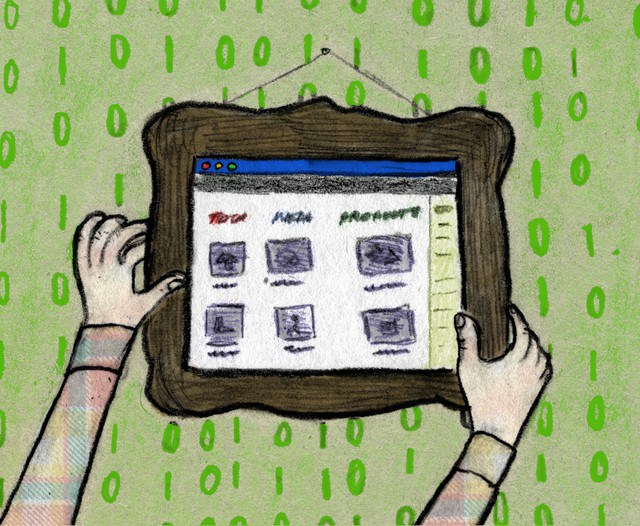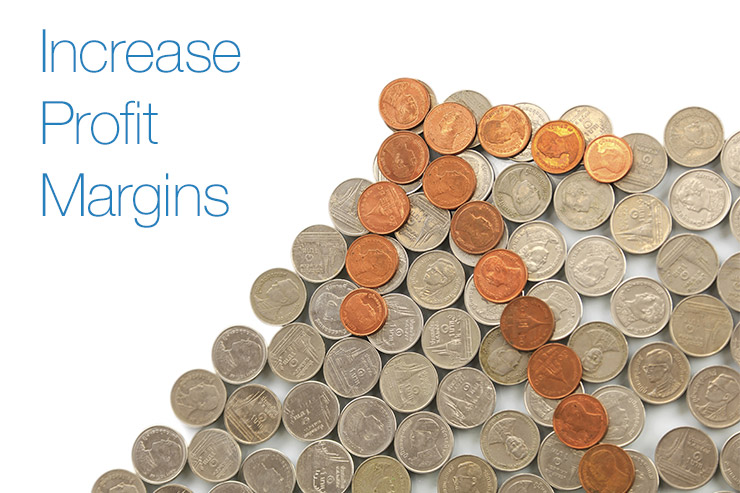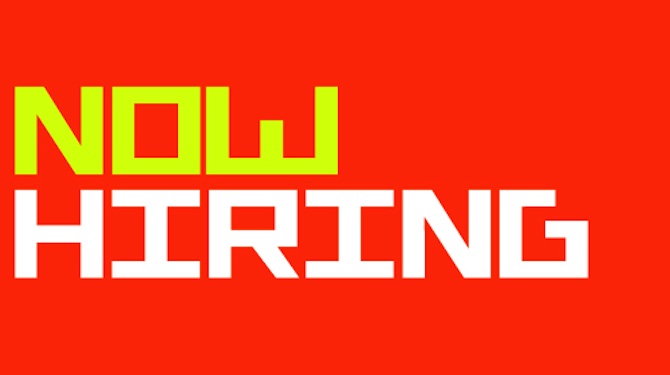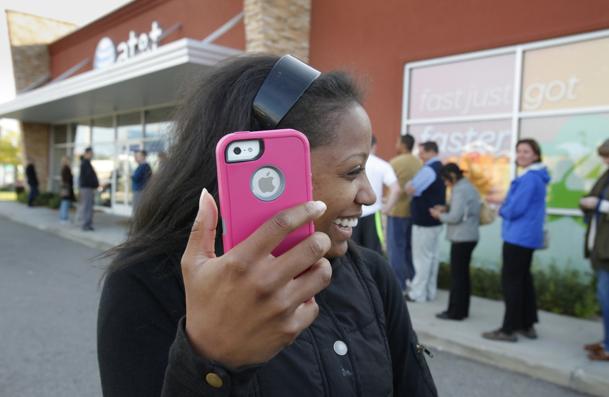Posts in Category: Startup Life
Big Data’s Big Deal is HUMAN TOUCH, not Technology – Published on LinkedIn
LET’S START WITH DATA DELUGE (WHICH, BTW, IS NOT THE PROBLEM):
We all know – there is data everywhere. In the past couple of years, the world has generated more data than the prior civilization put together. Whether it is content posted on web and social media, data transmitted from sensors in cars, appliances, buildings and airplanes, or streamed to your mobile, television or computers, we are surrounded and overwhelmed by data. Advancements in technology are the main driver of this data deluge, but similar advancements have taken place in the technology to collect and store data. This has made it economical for organizations to build infrastructure to store and manage large sets of data. But, the real problem is deriving value out of this data and making it useful. This is where most of the stagnation is today. According to International Data Corporation (IDC), only one percent of the digital data generated is currently being analyzed.
THE DATA REVOLUTION IS ABOUT INSIGHTS:
Everyone agrees there is a big data revolution happening, but it is not about the volume and scale of data being generated. The revolution is about the ability to actually do something with that data. What used to take millions of dollars to first build the infrastructure and then hire really smart and expensive individuals to analyze data, can now be done in thousands. It all comes down to using the right set of new age technologies and implementing right set of rules (read algorithms) to deliver answers that weren’t possible earlier. This is where the new age data computation and analysis shines. We have come a long way to leverage machine learning, graph analysis, predictive modeling algorithms and other techniques to uncover patterns and correlations that may not be readily apparent, but may turn out to be highly beneficial for business decision making.
There have been vast improvements in how and what type of datasets can be linked together to capture insights that aren’t possible with singular datasets. An example that everyone understands is how Amazon links together shopping and purchase history of customers to make product recommendations. Along with linking of datasets, improvements in visualization tools have made it much easier for humans to analyze data and see patterns. These technologies are now making inroads into all types of disparate use cases to solve complex problems ranging from pharmaceutical drug discovery to providing terrorism alerts.
via Big Data’s Big Deal is HUMAN TOUCH, not Technology | Jasmeet Sawhney | LinkedIn.
Big Data’s Big Deal is HUMAN TOUCH, not Technology – Published on AnalyticsWeek
I have been involved in marketing analytics work for some years now. It requires me to regularly talk to CXOs about their big data challenges, and their plan to leverage this data to improve business decision making. I am constantly surprised how much misconception exists among executives. All of them read about new technologies and platforms coming out of Silicon Valley that magically clean, organize, analyze and visualize data for them. As if, they just have to implement some technology, press a button, and insights would start flowing.
This is a myth. There is no such (magical) technology-based analysis. Period.
Big Data’s big deal is not about technology platforms – it is rather about appropriate human interface with data technology.
I am myself guilty of selling big data solutions under the facade of technology and platforms. In many ways, I have contributed to this misconception about Big Data technology. So, I hope you believe me when I tell you – Big Data’s big deal is not about technology platforms – it is rather about appropriate human interface with data technology. Let’s not continue to speculate that technology platforms would save the enterprise from all data problems. I have seen the most advanced technology platforms that exist today. There is only one thing I know – these platforms would serve no purpose if we don’t have trained data professionals who know three basic things – business/domain knowledge, analytical experience, and ability to embrace new data technology.
via Big Data’s Big Deal is HUMAN TOUCH, not Technology – AnalyticsWeek.
New Jersey Tech and Pharma Companies on the 2015 Deloitte Technology Fast 500 – Published on NJ Tech Weekly
Below we present the New Jersey companies that made the Technology Fast 500 list published by Deloitte LLP, a global professional services firm with U.S. headquarters in New York.
The Technology Fast 500 provides a ranking of the fastest growing technology, media, telecommunications, life sciences and clean technology companies – both public and private – in North America. Technology Fast 500 award winners are selected based on percentage fiscal year revenue growth from 2011 to 2014, the company said in a statement.
The Light Within: A Poem – Published on LinkedIn
Musings on the impact of inner light on our professional life.
It is the light within.
Hides deep beneath our skin,
Holds our destiny, shapes our lives,
Strikes more often than we realize,
Brings us to extremes more often than we like,
Makes us low and high, losers and winners,
It is the light within.
It takes us far and beyond, below and under,
Turns impossible into possible, possible into impossible,
Drives us to excellence, leaves us doomed,
It is the light within.
Propels us to achieve the unachievable, drowns us in mere existence,
Transports us to heights of happiness, and wells of sorrow,
Infuses completeness, and shoves us to hollowness,
It is the light within.
It is the light within that has many shades, so we must decide!
To become an optimist, or wind the pessimist fire;
To push the boundaries, or be contained;
To explore the unexplored, or be lost in self doubt;
To let in the breeze of change, or breathe stale air.
Shine bright or become a shadow,
Pick a shade of the light within.
Why not take the path where the light itself wants to travel?
Don’t! listen to the world; It only wants us to quit.
Pick the road that is rough and tiring;
Let’s work on a niche that makes us an authority;
Polish qualities others cannot replicate;
Associate with people who value what we cultivate.
Sparkle in brilliance of the light within.
Brilliance that glows without light.
Find no other use;
For it is the light within that makes us win!
Work Life Balance: A Poem – Published on LinkedIn
You seek stability, Work/Life balance, you explain.
I fail to understand your quest; what sort of balance, I ask?
Not everyone has a dream job, I understand;
Many struggle to make ends meet.
Some are tired of the physical labor;
Others, victim of mental stress.
‘Bored to death’, you exclaim!
Perhaps, there are higher priority things to do;
‘Quality time’, you imply.
A Senior yearning to take care of sick wife.
A Mom longing to meet kids after work.
A Girl planning to watch a show with fiancé.
A Millennial hosting a party tonight, every night.
I admit, corporate walls can turn you insane;
Productivity demands time-off.
Some, also have genuine reasons to escape work.
But, for most, Work/Life balance is just an excuse!
If work feels like work, the quest needs to change.
Don’t seek balance! Seek new work.
Explore stuff that you enjoy; at least, change the status quo.
Maybe a new function, a new employer,
Better colleagues, a caring boss.
Whatever it takes, find work that brings joy, not eternal exhaustion.
Work that becomes part of life.
Because, when it does, you stop seeking balance,
You start seeking excellence.
And, along comes quality of life!
Sikh Tech Startup Founders – On Satjot’s Blog
 It is sometimes very lonely to work on a technology startup. The ups and downs are unimaginable. The culmination of all the hard work is generally binary: (0) huge success, (1) failure. And it’s an emotional roller coaster that only other founders can relate to.
It is sometimes very lonely to work on a technology startup. The ups and downs are unimaginable. The culmination of all the hard work is generally binary: (0) huge success, (1) failure. And it’s an emotional roller coaster that only other founders can relate to.
So, I’ve always wanted to learn about fellow sikhs who are running technology startups. I’ll try to kick off the list of founders here and hopefully you can add to it in the comments.
The Productivity Value of ‘Sent From My iPhone’ – Published On Inc
If you email from an iPhone, maybe that line that automatically plugs into your signature–”Sent from my iPhone”–feels tacky, like you’re being used as a marketing arm for Apple. Or maybe you do in fact love your iPhone, but the signature makes you feel uncomfortable because you’re not the type to humblebrag.
While many have opted to turn off the setting, though, others have found professional use for it. In a post on Boston tech news site BetaBoston, WorkLife.io CEO Jasmeet Sawhney explores unintended benefits of the signature line. His ideas might convince you to reactivate your iPhone signature, or if you’re not the Apple type, to create a similar tagline on your phone. (Microsoft employs a “Sent from my Windows phone” signature on its smartphones.)
Check out Sawhney’s post for his entire ode, but a couple of his points show how the brief note can actually serve as a productivity hack.
via The Productivity Value of ‘Sent From My iPhone’ | Inc.com.
The Unintended Benefits Of “Sent from my iPhone” – Published On BetaBoston
When iPhone was first launched, these 4 words – “Sent from my iPhone” – were perceived by many as a way to flaunt your new device via emails. When I got my first iPhone, I made sure to remove the email signature fearing I would come across as a swagger. But, what started as an annoying display of status (or brand marketing for Apple), has become a very practical aid for professionals. This is primarily due to the fact that expectations and perceptions of the email recipient are very different when email comes from a smartphone instead of a desktop. It may not seem as apparent, but here are some unintended benefits of this ubiquitous signature, which beg the question – should this signature be included in some of your desktop email replies as well?
via The unintended benefits of “Sent from my iPhone” | BetaBoston.







